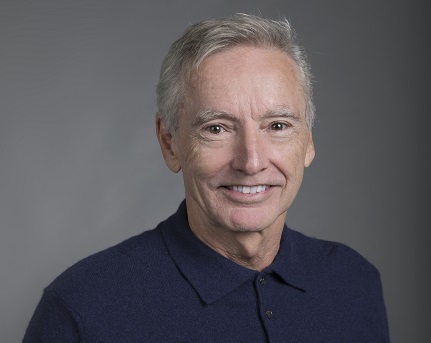In the early 1990s, Australia’s quantum physics industry started, in part, when Robert Clark joined UNSW and founded the National Magnet Laboratory and Semiconductor Nanofabrication Facility.
Later, Professor Clark established the Australian Research Council Special Research Centre for Quantum Computer Technology to begin thinking about how to build a quantum computer.
His efforts inspired a generation of researchers to start working on a range of quantum technologies.
Since then, Australia’s quantum ecosystem has grown significantly as new discoveries and developments in quantum technologies get set to power entirely new applications, companies, and industries.
For most, the first thought that comes to mind when hearing the word “quantum” is quantum computing.
By far, this is the area of quantum that has received the most hype and attention over the years, but it’s only one piece of a much larger puzzle and is the furthest away from being realised.
The reality is that quantum encompasses a broader number of applications – from sensing to cryptography, communications, and security – which are here and now opportunities.
The push and pull of Australian quantum talent
Since Robert Clark’s work, Australia has attracted more and more quantum physicists over time.
The legacy that Australia has makes our home a prime place for quantum scientists to conduct their research.
Groundbreaking work is taking place across a number of Australia’s universities, including ANU, UNSW, Macquarie, UTS, the University of Sydney, the University of Melbourne, the University of Queensland, La Trobe, RMIT, the University of Adelaide, Flinders, Monash, and more.
The position Australia enjoys in the quantum industry is also attracting new talent to our shores.
Take John Martinis, an award-winning physicist who led Google to build the first quantum computer that demonstrated an advantage over a classical system in solving a specific problem type.
Just last year, Professor Martinis came to Australia to work with Silicon Quantum Computing on its silicon spin quantum computer, a startup founded by UNSW Professor Michelle Simmons.
This same legacy and pool of talent, however, has also resulted in some of our experts being pulled away from our shores.
The rise of quantum divisions in global giants like Microsoft, AWS, Google, Hitachi, and IBM, as well as well funded quantum startups like PsiQuantum and IonQ, has led to Australian quantum talent being enticed into these organisations.
These organisations are populated with Australian talent because of the expertise and intellectual horsepower in Australia.
Australia’s world class cohort of scientists, who are thought leaders in quantum physics globally, have positioned us to drive forward real applications of the technology.
According to the CSIRO, quantum could become a $4 billion industry for Australia by 2040 and create around 16,000 new, high-value jobs.

Bill Bartee. Photo: Supplied
Opening the doors to quantum technologies
Some of our scientists and founders are already building quantum companies that are leading the world in their respective categories.
This is not an industry that we have to establish, it’s an industry that is being established and is rapidly growing.
Q-CTRL, for example, is a company delivering transformational real-world outcomes from quantum technology.
Based on its disciplined quantum control engineering solutions, Q-CTRL is able to help make quantum computers more useful.
The company has recently partnered with Transport for NSW to tackle Sydney’s complex commuting problems, including updating schedules in real time if there’s crowding on the network.
Its solutions help quantum algorithms run more efficiently enabling the transport system to better solve routing and scheduling problems.
Its same quantum control platform also helps quantum sensors detect the undetectable.
Quantum sensors can detect underground ore bodies, monitor movement, and know our exact location without a GPS system that connects to a satellite.
Quantum Brilliance, a recent entrant, is developing small quantum computers to act as co-processors (quantum accelerators) to supercomputers.
It hopes to show that, for certain types of problems, the combination of a supercomputer and their quantum accelerator working together, can solve these problems faster.
Eventually it hopes to build scalable, interconnected sets of quantum accelerators capable of “addressing complex systems of systems, such as molecular dynamics, leading to anticipated advances in battery technology, industrial catalysts, drug discovery, and many more.”
As we continue to develop new technologies like self-driving cars, new imaging techniques that allow doctors to identify and treat issues faster and more effectively, and techniques that rapidly discover and develop new drugs, we need more computational power than we have today.
The challenge is that sustained computational power growth in classical systems is running out of steam.
Quantum computers promise to help us overcome this.
Where quantum can take us
It’s worth noting that we are only just at the beginning of the quantum era and there is a long way to go.
While quantum sensing and cyber systems are here now, we really don’t know when a truly useful quantum computer will be built.
Experts speculate that it could be five to 30 years before a quantum computer capable of outperforming today’s classical systems will be built.
There are also lots of guesses about what the best applications for a quantum computer are.
Most likely the best applications will be things we haven’t thought of yet.
Because this is a very complex field, with lots of problems to solve, there is also a decent chance that such a system may never be built.
The potential applications for quantum are vast.
It’s more than work conducted in a lab with scientists.
There is a tangible impact on things that we, as consumers, rely on every day.
It empowers new technologies from healthcare to transportation and space exploration.
However, while there are big promises and much discussion around these solutions today, the reality is that we’re not there yet and there is a way to go.
It’s crucial that we double down our focus on building Australia’s quantum industry, by investing in our homegrown pioneers.
Bill Bartee is the Managing Partner at Main Sequence, the deep tech investment fund founded by CSIRO. Prior to Main Sequence, Bill founded a number of companies and investment firms, including Blackbird Ventures.
This content has been written by a topic area expert. It is not a sponsored post or advertisement.









